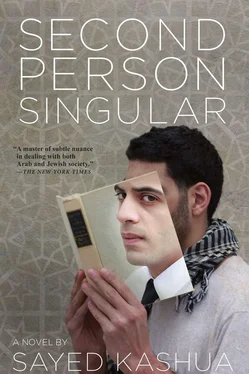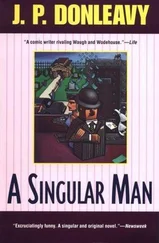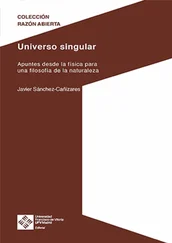The lawyer noticed that all present, but particularly the males, were looking fatigued by the all-too-familiar lecture. He got up every now and again, apologized, and went to the freezer to replenish the ice supply, which was being used with the whiskey at this stage of the evening. Two bottles sat on the table, one Chivas and one Johnnie Walker Black — the whiskies of the rich Arab.
The lawyer glanced at his watch as casually as possible and saw that the discussion had been going on for longer than usual. Faten, armed with all sorts of facts and figures, had not yet run out of steam. Had the discussion adhered to what the group had initially intended — a cultural dialogue — it would have gone stone-cold long ago.
The lawyer knew, as did everyone present, that they all merely gave the impression of being educated. They had come a long way, each in their own field, but in their hearts they knew that they were lacking in comparison to their Jewish colleagues. There was no changing the fact that they were all members of the first generation of educated Arabs in Israel. Their parents, like most of the Palestinian population that remained in the land after the War of Independence, were soil tillers, fellahin, who, if they were lucky, and their village had had a school, had perhaps attained a high school education. The parents of all those present, although uneducated, understood the importance of education and did all they could to ensure that their children went to university and succeeded. The dream of every Arab mother in Israel is for her son to become a lawyer or a doctor. The Arab students that are accepted to those faculties are as revered in their communities as the flight school cadets among Jewish Israelis. But academic achievements were one thing and a firm knowledge of the essentials of Western culture quite another. When in school, the lawyer had frequently cringed at his own lack of familiarity with contemporary music, literature, theater, and film. Like all now present, he, too, consoled himself with the thought that the Jewish students were certainly ignorant of Arab culture, its singers, movies, and plays, but he had to admit that most of that culture was frankly not worthy of being called art. There were several impressive classical musicians, but in so far as theater and film were concerned, most of which came from Egypt, the lawyer knew there was nothing to be proud of.
The lawyer was certain that the other members of the group had also been made aware of their shortcomings and that they realized that they, too, had to close the gap. If they were unable, then they had to ensure that their children were given the tools to do so. After all, the decision to found a mixed school, to send their children off to study with Jews, the lawyer thought, was not borne of shared ideals or a dedication to coexistence, as the brochures claimed and the philanthropists believed; the Arab parents simply wanted their children to soak up Western culture, for their children to learn from the Jews that which they themselves could not provide. All of a sudden the lawyer started to feel that they were sending their children like spies into the heart of a foreign culture. It will be interesting to see what type of insights they come back with, he thought, whether they return as double agents.
He shook himself free of his thoughts and tried to follow the twists and turns of the discussion, which had veered into the nature of the curriculum at the school that many of their kids attended. “We have to look really closely at the kind of values that are being instilled there,” Nili, the gynecologist’s wife, said. “All week long my son’s been singing ‘On Rosh Hashanah, On Rosh Hashanah.’”
“What’s wrong with that?” the gynecologist asked, turning to his wife. “It’s a good song.” Everyone laughed, and then Anton, who was on the school’s steering committee, said, “We’re working on that, though,” adding that the school administration had been told in no uncertain terms to beef up the Palestinian nationalist dimension of the studies, which, he conceded, was lacking in comparison to that of the Zionist Israeli narrative.
“It’s true,” Nili said. “I see that the kids are constantly singing about the Land of Israel and Hanukkah and Passover, but other than that one poem by Mahmoud Darwish they haven’t learned a thing that qualifies as Palestinian. There has to be equality. It can’t go on like this. We have to do something.”
“Why is that?” Tarik asked, drawing all the eyes in the room. “I’m sorry. I don’t really know anything about this and I don’t have kids yet, but why exactly do they need to strengthen their Palestinian nationalism?”
Tarik’s question was met with silence and an edgy bewilderment.
“What do you mean, why ?” Samir asked. “Because they’re Palestinians. A child needs to grow up with a sense of national and cultural awareness. Look at the Jewish kids, from age six they know all about the wars and have a good sense of where they want to serve in the army when the time comes.”
“Yes, I know,” Tarik said, somewhat bashfully, feeling as though he had butted into a conversation that did not include him. “But when you see that kind of an Israeli kid, how does it make you feel?”
“Bad,” Samir spat, earning nods all around. “Because they don’t teach them about us . They purposely pave over the Palestinian side of the story. They learn the Israeli narrative, as viewed through the lens of the Zionist industry.”
“Yes, I understand that. But why respect either side of the story?” Tarik inquired, plodding on even though his face showed that he already regretted it.
“What do you mean, that’s the history of our people you’re talking about. Our roots, our culture. Children have to understand and internalize these things, otherwise how will they plot their own futures?”
“That’s true,” Tarik said, preferring to avoid an argument. “You’re right.”
The lawyer knew where Tarik had been headed. He had worked with him for long enough and he regretted that Tarik felt too shy to continue to make his case.
“You know what,” the lawyer said, quoting a line he’d heard from Tarik, “I also don’t buy catchphrases like, He who has no past, has no future. ”
“How can we raise a proud generation,” the gynecologist’s wife asked, “if we don’t teach them to be proud of their forefathers, their history, their people? I don’t get it.”
“I don’t know,” the lawyer said. “It just seems to me sometimes that we — not just us Arabs, but all of us — don’t have that much to be proud of in terms of our pasts.”
“That’s nonsense,” the gynecologist said, gathering a fistful of cashews. “Honestly, I’m surprised at you. What’s a man worth without his roots? It’s just like a tree, how can it grow without strong roots? It’s the same with kids, with nations.”
“Well, that’s the thing,” the lawyer said, smiling as he distributed more ice and whiskey. “Sometimes I think a tree is a tree and a man is a man.”
BED
“Tarik can forget about Faten finding him a match,” the lawyer’s wife whispered, mindful of the baby in the nearby crib. She was sitting on the edge of the bed, rubbing cream into her hands while the lawyer took off his clothes, stripping down to his boxer shorts. “What was that about?” she asked her husband, “I thought Tarik was a nationalist.”
“He’s all right,” the lawyer said. “They just didn’t get what he was saying.”
“What do you mean?”
“He’s a bit of an anarchist,” the lawyer said, knowing his wife wouldn’t understand him. “He doesn’t buy into the system. He’s not willing to play the nationalist game.”
Читать дальше












